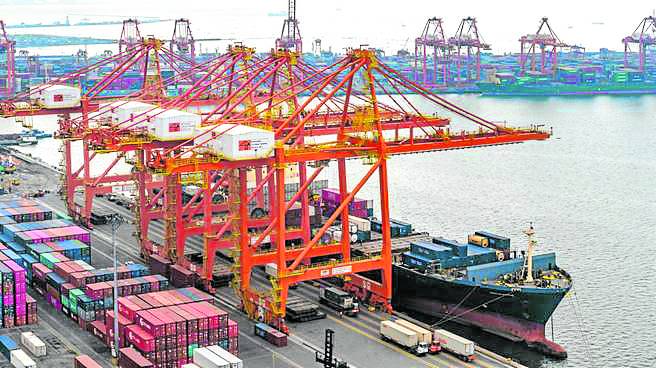Southeast Asia riskiest in shipping, says report

OFFSET EARNINGS Cargo throughput in the country increased last year, but the cost of risks is also rising. —Photo from ICTSI
MANILA, Philippines — Almost a third of the vessels that were lost at sea last year were in the vicinity of the Philippines and other parts of Asia where high volumes of shipments pass through, according to global underwriter Allianz Global Corporate & Specialty (AGCS).
The Safety and Shipping Review 2024 report by AGCS noted that most of the shipment losses were tracked in the Philippines, South China, Indochina and Indonesia last year.
In 2023, a total of 26 vessels were lost worldwide, fewer than 41 in 2022. The latest figure shows a significant improvement as shipment losses amounted to as much as 105 vessels in a single year in the past decade.
READ: Vessel losses rampant in PH
Most of the shipment losses were cargos, with a total of 16 vessels, followed by fishing with four vessels and tug boats with three vessels.
Vessels sinking was the primary cause for shipment loss last year. Others were wrecked and stranded while some were lost due to fire or explosion and collision incidents.
The report noted the geopolitical tension surrounding Russia, Ukraine and the Red Sea has made cross-border transfers of vessels challenging.
READ: No delays in PH shipments so far despite Red Sea tensions
Dynamic situation
“Unstable regimes, regional disputes and rivalries make for a dynamic situation around some of the world’s busiest shipping routes,” said Nitin Chopra, senior marine risk consultant at Allianz Commercial Asia.
“The Red Sea crisis shows just how important critical waterways like the Suez Canal are to the world economy, and how vulnerable they can be to disruption,” he added.
The Houthis have launched attacks in the Red Sea—one of the world’s busiest shipping lanes—to show its alliance with Palestinians amid the ongoing war between Israel and Hamas.
This situation has forced shippers to reroute their vessels via Cape of Good Hope in South Africa to avoid the Suez Canal in Egypt, which means longer turnaround time and costlier operation.
“Both routes are critical for the transport of manufactured goods and energy between Asia, Europe, and the US East Coast. Whichever route vessels take, they face lengthy diversions and increased costs,” Chopra said.
More costs
“And let’s not forget, prior to these situations, the war in Ukraine had already prompted many shipping companies and cargo interests to seek alternative routes,” the analyst added.
According to a report by the Business Monitor International, a Fitch Solutions unit, the conflict might cause shipment delays of six days to 15 days due to rerouting of vessels.
Data from the Philippine Ports Authority showed that cargo throughput grew by about 5 percent to 271.97 million metric tons (MT) last year from 259.14 million MT in 2022, surpassing the prepandemic volume of 265.88 million MT.
The Department of Transportation (DOTr) is set to build additional maritime facilities to promote sea transport for both cargo and passengers.
The DOTr previously shared its plan to construct and expand 14 roll-on-roll-off ports across the country.